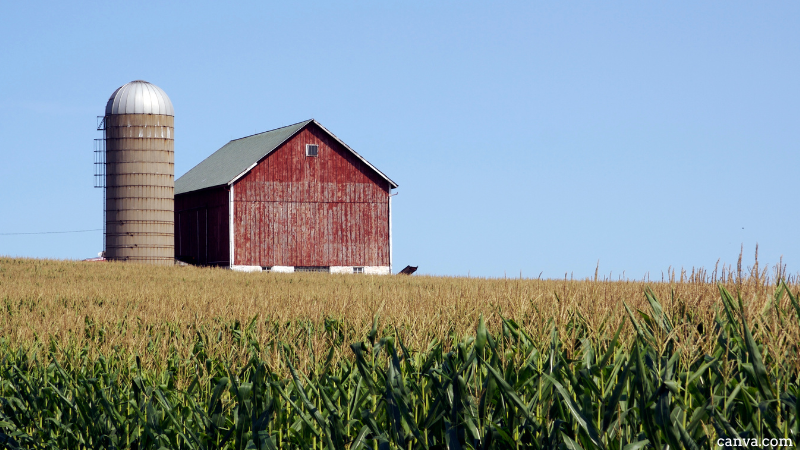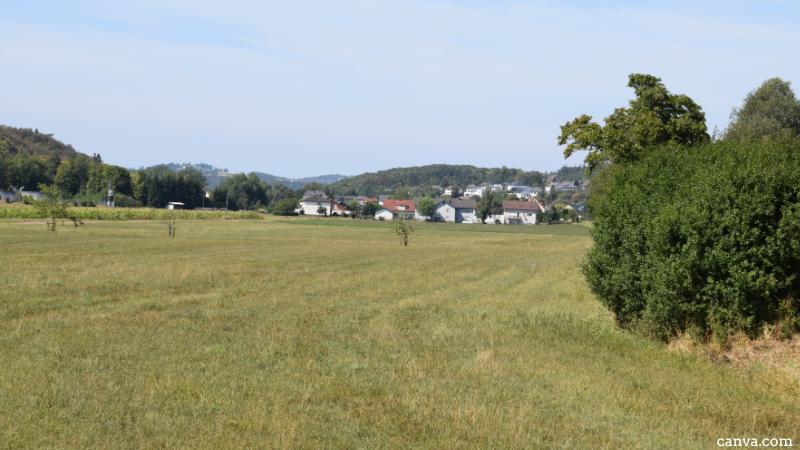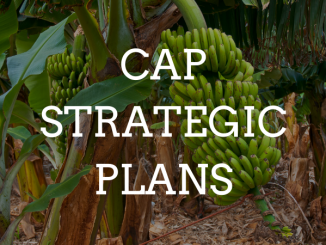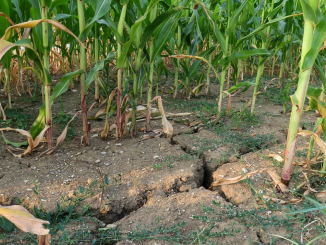
In a new CAP that largely maintains the status quo, social conditionality emerges as one of the few truly innovative elements. But is it going to be a real game-changer? This new legislative tool has the potential to improve the working conditions of millions of farm workers. But does it offer the means to achieve this goal? In this article, we will explore what can be anticipated and discuss ways to enhance its effectiveness.
A long-awaited victory
As of 2020, an estimated 8.7 million people were reported to be employed in agriculture. However, when considering the entire unregulated workforce, the agricultural labor force is significantly larger, estimated to encompass around 17 million people.
The instability of agricultural labor, which is often seasonal and unregulated, has provided fertile ground for inhumane working conditions, meagre wages, extended work hours, and subpar housing, among other huge challenges experienced by European farm workers.
Despite their often unnoticed struggles, whether they are EU citizens or non-EU residents, migrants or refugees, farm workers across Europe have joined forces for decades, advocating for their rights, social equity, and workplace dignity.
While CAP subsidies have rightfully been contingent on adhering to basic environmental standards, the previous CAP programings notably overlooked the importance of compliance with human and labor rights when allocating direct payments.
Consequently, it’s not surprising that the CAP has thus far struggled to make significant improvements in the working conditions of agricultural laborers. Therefore, the introduction of social conditionality in this new CAP programming marks a potentially transformative moment for the agricultural sector.
In light of this, Social Conditionality stands out as one of the few key accomplishments of this new CAP programming. However, we must delve deeper to understand its true potential and consider how to enhance it for the future. What provisions does it contain, and how can we optimise its effectiveness moving forward? Let’s delve into it.

What’s the gist of it?
Article 14 of Regulation 2021/2115 outlines the functioning of social conditionality. The core concept of social conditionality is simple: Farmers who fail to adhere to basic labour standards will risk a reduction in their CAP subsidies.
As is often the case in this new CAP, Member States bear the responsibility of defining precise rules and specifying the administrative penalties involved. Furthermore, Member States are tasked with establishing labour inspections and enforcement mechanisms.
Annex IV provides the basic items that must be integrated in the system. The areas targeted are transparent employment conditions, including the necessity to provide contracts, as well as the health and safety of workers, which includes the proper use of equipment.
Whatever else about critical perspectives identifyed weaknesses therein it’s essential to reiterate that the incorporation of social conditionality into the CAP represents a victory for both farm workers and responsible employers. It constitutes an initial step, one that should serve as a foundation for future developments and reforms in the agricultural sector.
Main weaknesses
The timing
Specifically, Member States are given until January 1st, 2025, to put the new conditionality into effect. Only France, Germany, Italy, Luxembourg, Spain, and Portugal are poised to implement it prior to this date. Consequently, we will need to wait until at least 2026 to conduct a comprehensive impact assessment on the practical implementation of conditionality across the EU.
If we consider this CAP programming to be a test for social conditionality and potentially the first block on which to build a stronger, more efficient, social conditionality, then 2026 is very late to start analysing its implementation, with the next CAP less than two years away.
The scope
As it stands, the social conditionality still has a limited scope of action in terms of sectors concerned. Notably, social conditionality will exclusively be applicable to recipients of area-based direct payments. Similar to environmental conditionality (GAECs), specific sectors receiving subsidies through operational programs will remain exempt from social conditionality. Consequently, the scheme will have minimal to no effect on the numerous farm workers employed in the fruit and vegetable sector, as well as in sectors such as wines, apiculture, olive oil, and a few other exceptions.
This is a crucial weakness as some of those sectors such as fruit and vegetables, wine or olive oil specifically bring in farm workers on a sporadic, seasonal basis, for harvesting. An EU Parliament research service briefing specifically coined the fruit and vegetable sectors as “heavily dependent on a non-national labour force, either from other EU Member States or third countries” adding that “the temporary nature of their activity can make seasonal workers more vulnerable to precarious living and working conditions, even to exploitation and trafficking”.

The enforcement mechanism
The mechanism for enforcing and monitoring the implementation of social conditionality relies on existing checks and controls carried out by Member States. However, in many Member States, labor inspection agencies are underfunded and may struggle to ensure proper implementation.
A study conducted by the European Economic and Social Committee (EESC) highlights the challenges faced by national authorities in enforcing existing labor laws due to their limited inspection capacity. The study raises concerns, suggesting that if “the controls by labour authorities are expected to be of a merely administrative nature under the CAP, the positive impact of the social conditionality mechanism is questioned”.
Furthermore, the mechanism appears to overlook the fact that in several EU countries, seasonal employment in the agriculture and food sectors is facilitated through intermediaries. According to the EESC study, these intermediaries serve a crucial role in matching seasonal labor needs with the agriculture and food sectors. However, there is substantial evidence indicating that they can also be avenues for fraud or even criminal activities.
Therefore, it is essential to clarify how social conditionality operates in cases where CAP payments to a farmer depend on the adherence to rules by a third-party intermediary.
The lack of a harmonised sanctions system
The level of sanctions following a breach of rules is determined at national level. This may lead to a degree of heterogeneity of the treatment of farmers across the EU.
It must also be remembered that the CAP penalties would add up to the fines already stipulated in the national labour codes, which are also not harmonised among countries. This could lead deciders to settle for low sanction levels as to not overburden the farmers.
The danger of a flexible approach is that too low sanction levels can seriously jeopardise social conditionality’s potential.
Minimal reforms for an effective implementation of Social Conditionality
As previously discussed in this article, while social conditionality represents a significant step forward, it is poised to face challenges such as a slow implementation pace, limited coverage, and a lack of harmonization across the EU.
To make sure that Social Conditionality is functional, a series of minimal reforms must be undertaken both within and outside the framework of the CAP. Below, we outline some of the critical needs that should be considered.
A transparent assessment
In their proposal for implementing Social Conditionality, The European Coordination Via Campesina (ECVC) proposes to create a public observatory and permanent social dialogue systems, within the framework of the EU, on the conditions of workers in the food chain, to ensure transparency, information and participation in the application of these mechanisms.
One of the main missions of the observatory would be to establish the collection of administrative information on employment contracts used to hire EU citizens for seasonal work in the agriculture and food sectors. It would also provide periodic statistics and ensure that data is homogenous and comparable between countries.
The observatory should also provide national data collection guidelines for the Member State so that the different agencies working on national level can communicate better together and towards the EU authorities.
According to the EESC study, a review of the Seasonal Workers Directive’s reporting system would also be needed to improve data collection on non-EU seasonal workers.

The inclusion of all sectors
Social Conditionality should also apply to the sectors that are mostly not subsidised through direct payment. Specifically, a control mechanism should be established for Producer Organisations to ensure that they also respect the same social standards.
Harmonising without increasing the administrative burden for smaller farms
The EU must take direct responsibility for the implementation of social conditionality and not leave the entire responsibility for its control and implementation to the member states.
To achieve harmonized inspections across the EU while minimizing administrative burdens on small and medium-sized farms, one potential approach could involve implementing automatic certification and contract traceability exclusively for larger agricultural enterprises.
ECVC made a proposal in 2021 where “farms claiming more than 70,000 euros in premiums, having a total balance sheet exceeding 2 000 000 euros or having more than 10 employees – directly or indirectly – will be required to have a prior public certification stating the traceability of employment contracts and compliance with all tax and labor obligations in force”.
The EESC also suggests the development of an “EU-wide labor inspection system designed to address violations of EU laws considering cross-border dynamics.” This could represent the initial phase in the formulation of EU legislation aimed at establishing minimum standards for labor inspection.
For example, the European Trade Union Confederation (ETUC) proposes that the EU should encourage Member States to meet the International Labour Organisation (ILO) recommendation of 1 labour inspector per 10,000 persons employed.
Enhancing open social dialogue
According to the ILO’s policy guidelines for promoting decent work in the agri-food sector, fostering transparent tripartite dialogue involving workers, employers, and government representatives is a crucial starting point.
Eliminating legislative or administrative barriers that may hinder agri-food workers and employers from forming or joining organizations of their choice and addressing challenges that impede their participation in social dialogue processes at all levels are essential to ensure their collective voice is heard in these processes.
The role of social partners should be more effectively integrated into the CAP, possibly by allocating funding to support their work on these issues. Additionally, there is a need to ensure that workers are well-informed about their rights. The successful implementation of social conditionality requires full alignment and engagement of both EU and Member States’ social partners with the stated objectives.
Going further to strengthen the impact of social conditionality
The proposals outlined above are crucial for the successful implementation of Social Conditionality. However, achieving functionality is just the initial phase. Once Social Conditionality is operating smoothly, the objective should shift towards enhancing its effectiveness and utilizing this innovative tool to tangibly improve the working conditions and livelihoods of farm workers.
To reiterate, the minimum requirements to be incorporated into the conditionality are specified in Annex 4 of the CAP Strategic Plan Regulation. It is imperative that we start a thoughtful examination of the additional standards that could and should be integrated.
Better housing standards
According to the EESC, housing issues (e.g., availability, costs, distance from the workplace, presence of essential services and facilities) still remain generally unresolved and continue to be a source of distress for seasonal workers.
It is therefor necessary to add minimum housing standards to the social conditionality. The EESC proposes as a start to decouple “housing provisions from employment provisions to reduce the dependency of workers on employers and intermediary agencies”.
Ex-ante assessment of the housing needs during harvesting peaks would also be needed.
Minimum wage
Social conditionality should serve as a means to guarantee a decent minimum wage for all farm workers across Europe. Contracts must provide long-term revenue stability and encompass paid vacations as well as the reimbursement of work-home travel expenses. Additionally, the minimum wage should ensure a meaningful contribution to social security.
Rewarding regulations: social-schemes for small and medium farms
To go further, it would be interesting to add positive regulations to the system. On climate and environment issues, farmers are required to make efforts and meet specific baseline standards (GAEC). However, should they aspire to surpass these minimum requirements, they can adopt additional practices to earn more subsidies through eco-schemes or climate and agri-environmental practices.
Similar subsidies could be designed to reward better quality of employment. In that sense, social-schemes could be designed to provide benefits or special aid to farms that certify a higher level of compliance with labour, social and employment conditions.
Such social-schemes could focus on specific issues such as positive discrimination towards women and other discriminated groups or increased minimum wages. The objective would then be, as should be the case with the environmental conditionality, to incrementally add those additional good practices to the minimum standards.
Furthermore, tailored subsidies could be developed for small-scale farm operations that might face difficulties in securing funds to meet specific social standards. Priority could be given to small farms that have demonstrated their commitment to transitioning toward agroecological practices, providing stable employment, and contributing to local product distribution. For those farms, an environment-social scheme could be structured based on a lump sum model.
Download this article as a PDF
 This article is produced in cooperation with the
This article is produced in cooperation with the
Heinrich Böll Stiftung European Union.
More on CAP Strategic Plans
French CAP Strategic Plan : EU Sued over Approval of the Plan
“A Fairer CAP”, Really? | Analysing Fairwashing in CAP Talks and Practices
CAP Environmental Derogations: What is the Impact on Food Security?
CAP post-2027: An Integrated Rural and Agricultural Policy – Part 2
CAP post-2027: An Integrated Rural and Agricultural Policy – Part 1
Can the CAP Strategic Plans Help in Reaching our Pesticide Reduction Goals?
Wallonia’s Observation Letter: A plan that fails to address climate and biodiversity crises
CAP Strategic Plans and Food Security: Fallow Lands, Feeds, and Transitioning the Livestock Industry
A Just and Green CAP and Trade Policy in and Beyond the EU – Part 2
A Just and Green CAP and Trade Policy in and Beyond the EU: Part 1
Bulgaria’s CAP Strategic Plan: Backsliding on Nature and Biodiversity
Changes “required” to Ireland’s CAP Strategic Plan – European Commission
French CAP Plan: What Opportunities for Change During the New 2022-27 Presidential Term?
CAP, Fairness and the Merits of a Unique Beneficiary Code – Matteo Metta on Ireland’s Draft Plan
ARC Launches New Report on CAP as Member States Submit Strategic Plans
Slashing Space for Nature? Ireland Backsliding on CAP basics
Quality Schemes – Who Benefits? Central America, Coffee and the EU
Civil Society Organisations Demand Open and Ambitious Approval of CAP Plans
CAP Strategic Plans: Germany Taking Steps in the Right Direction?
CAP Strategic Plans: Support to High-Nature-Value Farming in Bulgaria
Commission’s Recommendations to CAP Strategic Plans: Glitters or Gold?
German Environment Ministry Proposals For CAP Green Architecture
CAP Performance Monitoring and Evaluation Framework – EP Position
A Rural Proofed CAP post 2020? – Analysis of the European Parliament’s Position
CAP Beyond the EU: The Case of Honduran Banana Supply Chains
CAP | Parliament’s Political Groups Make Moves as Committee System Breaks Down
CAP & the Global South: National Strategic Plans – a Step Backwards?
CAP Strategic Plans on Climate, Environment – Ever Decreasing Circles
European Green Deal | Revving Up For CAP Reform, Or More Hot Air?
Climate and environmentally ambitious CAP Strategic Plans: Based on what exactly?
How Transparent and Inclusive is the Design Process of the National CAP Strategic Plans?






1 Trackback / Pingback
Comments are closed.